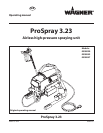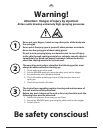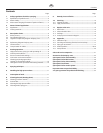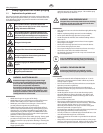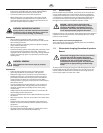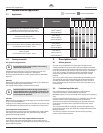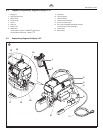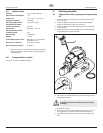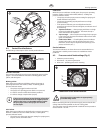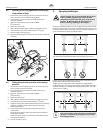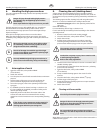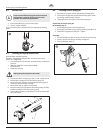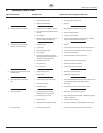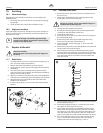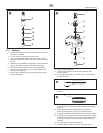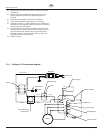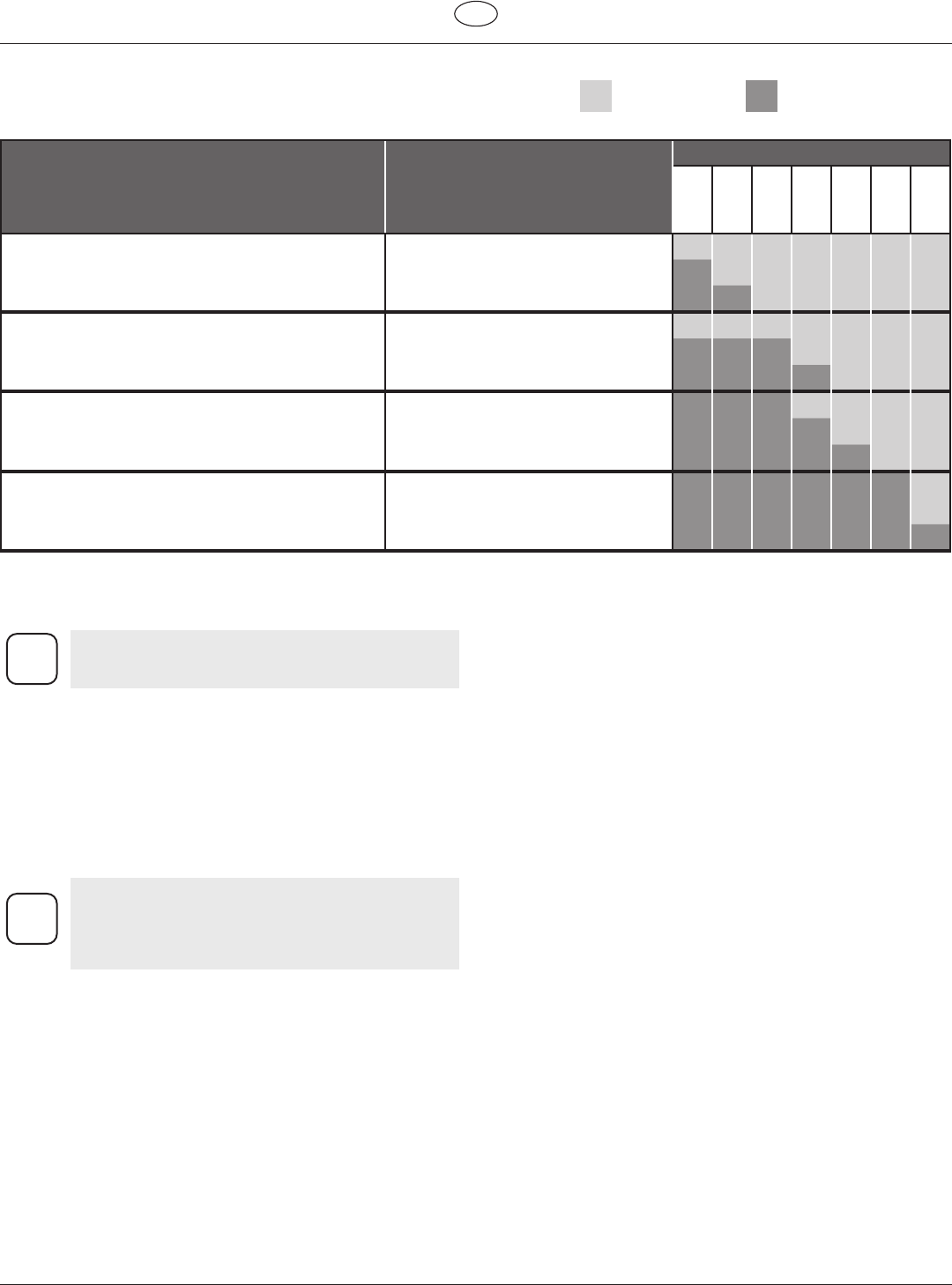
6 ProSpray 3.23
GB
General view of application Description of unit
2. General view of application
2.1 Application
2.2 Coating materials
Processible coating materials
i
Pay attention to the Airless quality of the coating
materials to be processed.
Dilutable lacquers and paints or those containing solvents, two-
component coating materials, dispersions, latex paints.
NoothermaterialsshouldbeusedforsprayingwithoutWAGNER’s
approval.
Filtering
Despite suction lter and insertion lter in the spray gun, ltering of
the coating material is generally advisable.
Stir coating material before commencement of work.
i
Attention: Make sure, when stirring up with motor-
driven agitators that no air bubbles are stirred in. Air
bubbles disturb when spraying and can, in fact, lead
to interruption of operation.
Viscosity
With this unit it is possible to process highly viscous coating materials
of up to around 20.000 MPa·s.
If highly viscous coating materials cannot be taken in by suction, they
mustbedilutedinaccordancewiththemanufacturer’sinstructions.
Two-component coating material
The appropriate processing time must be adhered to exactly. Within
this time rinse through and clean the unit meticulously with the
appropriate cleaning materials.
Coating materials with sharp-edged additional materials
These have a strong wear and tear eect on valves, high-pressure
hose, spray gun and tip. The durability of these parts cane be reduced
appreciably through this.
3. Description of unit
3.1 Airless process
The main areas of application are thick layers of highly viscous
coating material for large areas and a high consumption of material.
A piston pump takes in the coating material by suction and conveys it
to the tip. Pressed through the tip at a pressure of up to a maximum
of 221 bar (22,1 MPa), the coating material is atomised. This high
pressure has the eect of micro ne atomisation of the coating
material.
As no air is used in this process, it is described as an AIRLESS process.
This method of spraying has the advantages of nest atomisation,
cloudless operation and a smooth, bubble-free surface. As well as
these, the advantages of the speed of work and convenience must
be mentioned.
3.2 Functioning of the unit
In the following there is a short description of the technical
construction for better understanding of the function.
WAGNER ProSpray units are electrically driven high-pressure spraying
units.
A gear unit transfers the driving force to a crankshaft. The crankshaft
moves the pistons of the material feed pump up and down.
The inlet valve is opened automatically by the upwards movement
of the piston. The outlet valve is opened when the piston moves
downward.
The coating material ows under high pressure through the high-
pressure hose to the spray gun. When the coating material exits from
thetipitatomizes.
The pressure regulator controls the volume and the operating
pressure of the coating material.
Materials Object Size
Model
PS 3.21
PS 3.23
PS 3.25
PS 3.29
PS 3.31
PS 3.34
PS 3.39
Release agents, oils, undercoats, primers, llers,
synthetic resin-based paints, acrylic paints
recommendednozzlesize:FineFinish0.008“-0.014“
up to 200 m
2
200 m
2
- 800 m
2
more than 800 m
2
Emulsion paints, latex paints
recommendednozzlesize:0.017“-0.027“
up to 200 m
2
200 m
2
- 800 m
2
more than 800 m
2
Anti-corrosive agents, ame retardants, fabric adhesive
recommendednozzlesize:0.021“-0.031“
up to 200 m
2
200 m
2
- 800 m
2
more than 800 m
2
Airless-scrapers
recommendednozzlesize:0.027“-0.039“
up to 200 m
2
200 m
2
- 800 m
2
more than 800 m
2
= Recommended = Not-recommended



